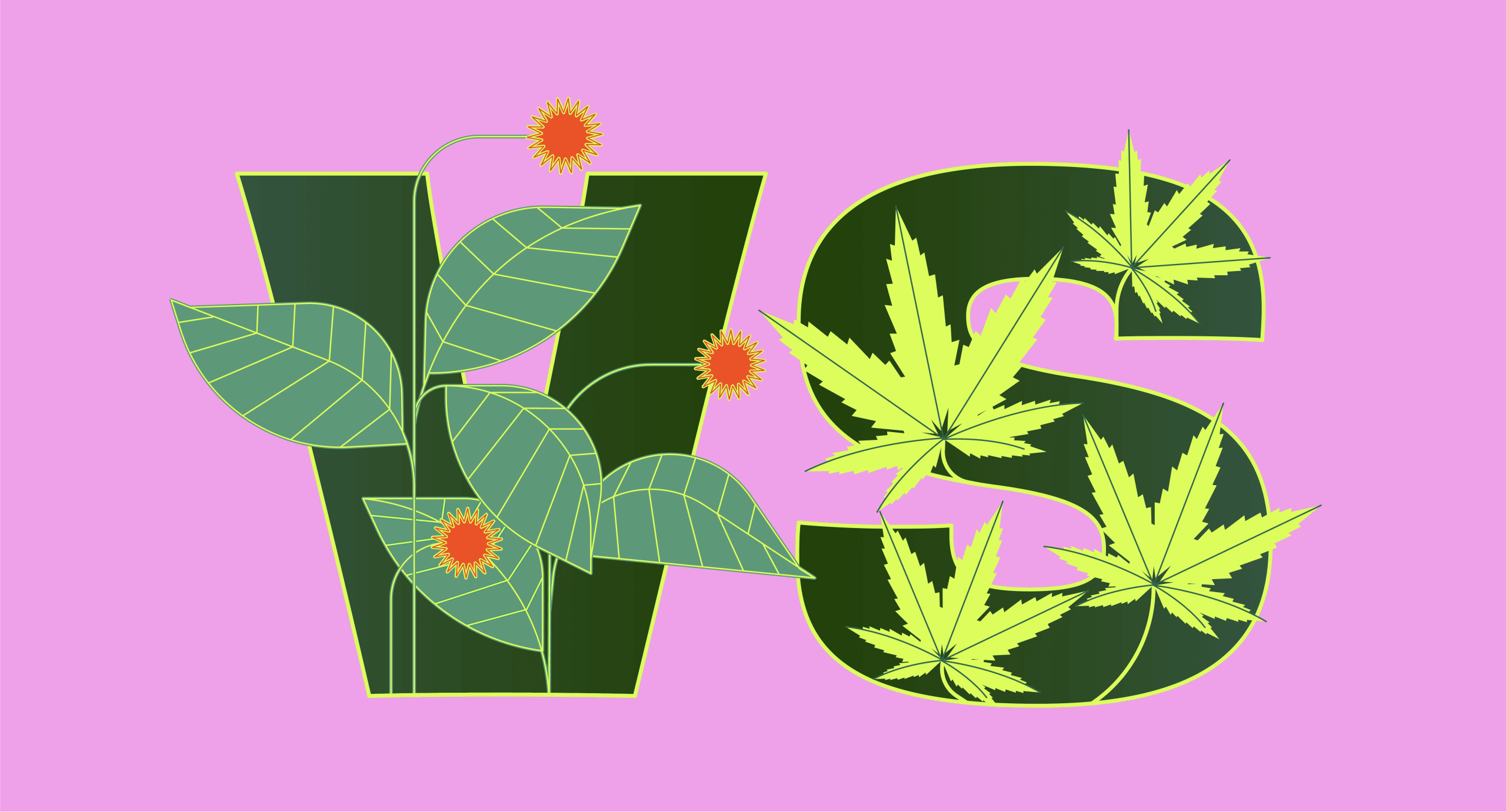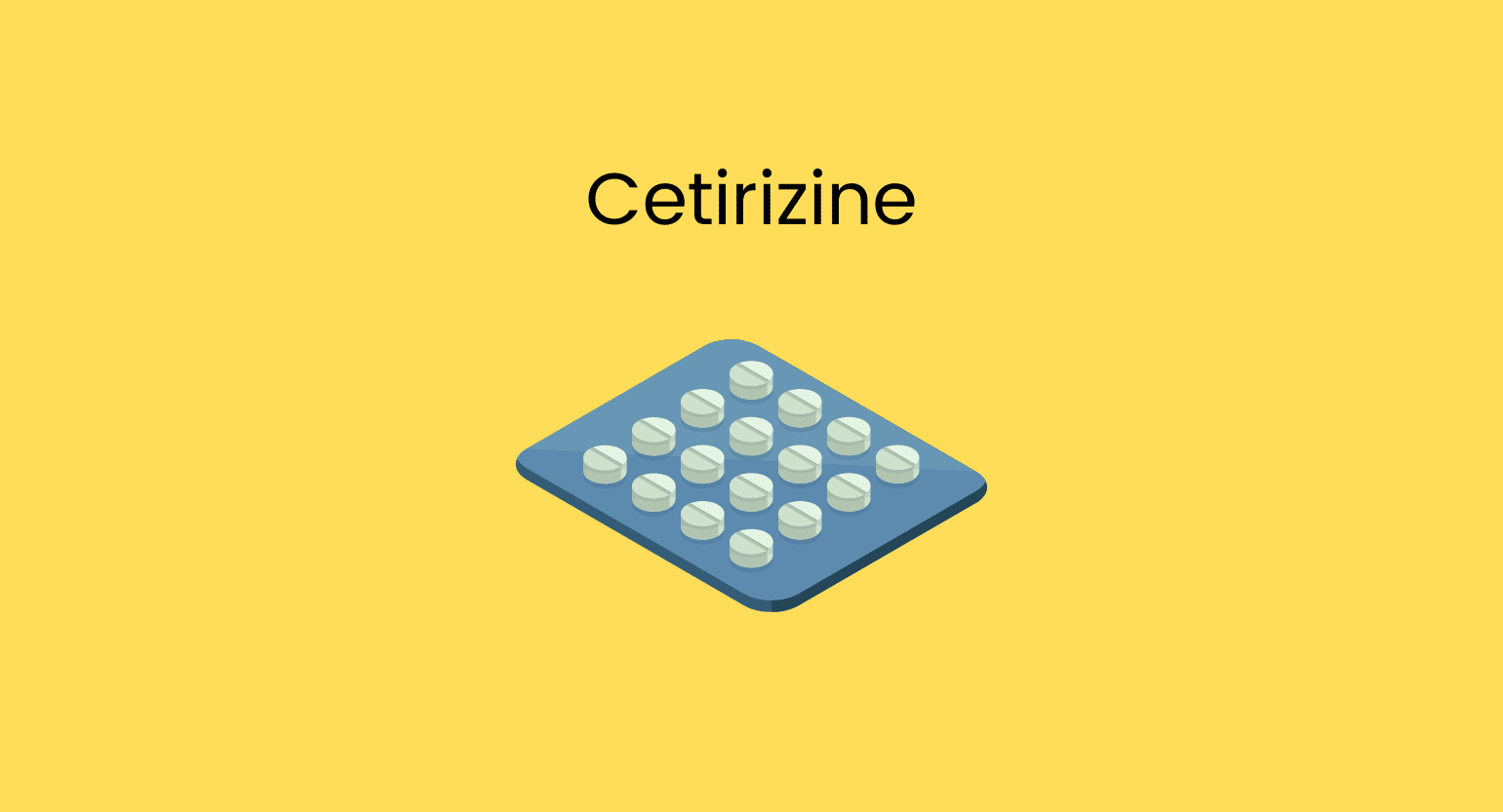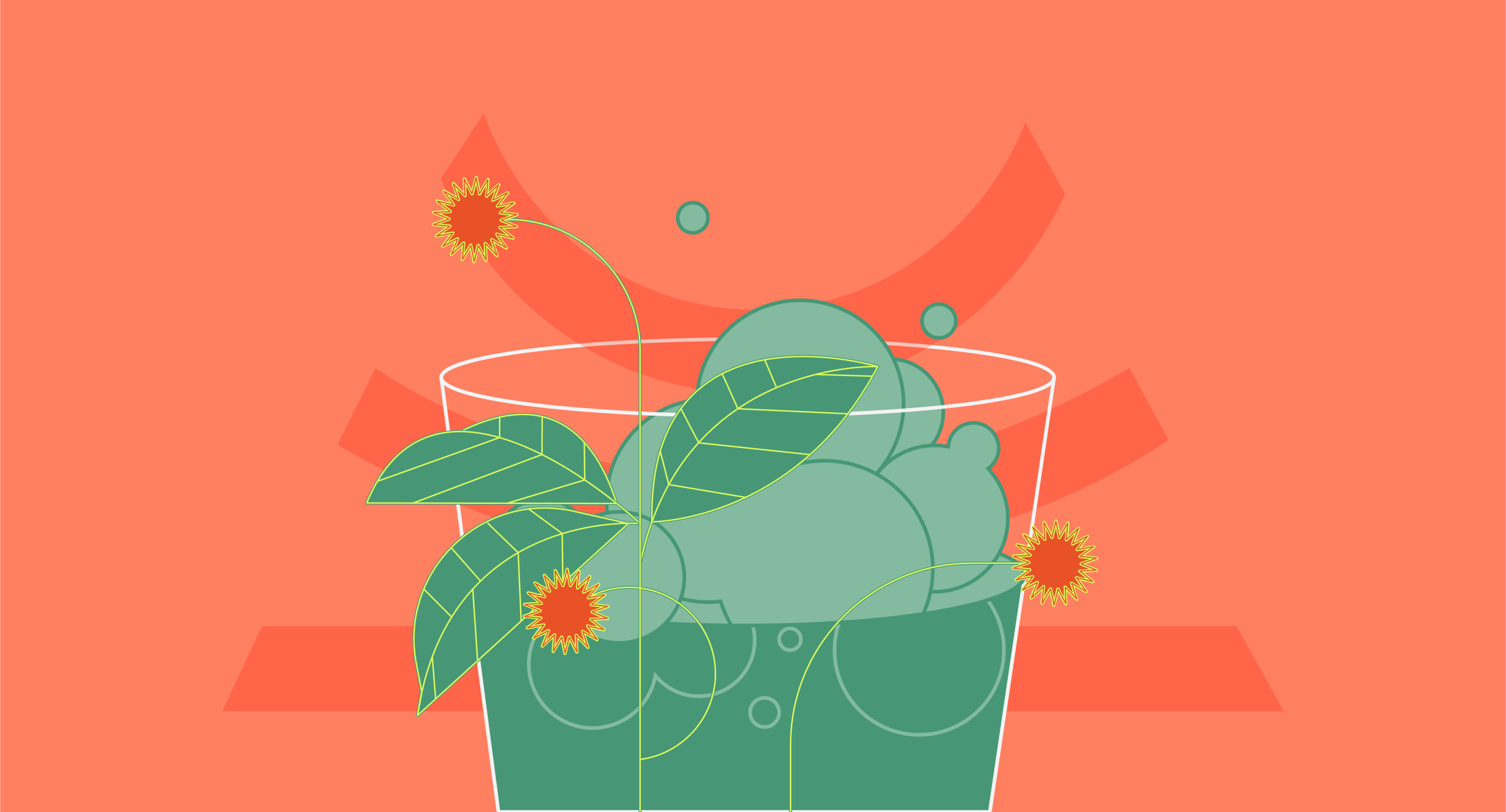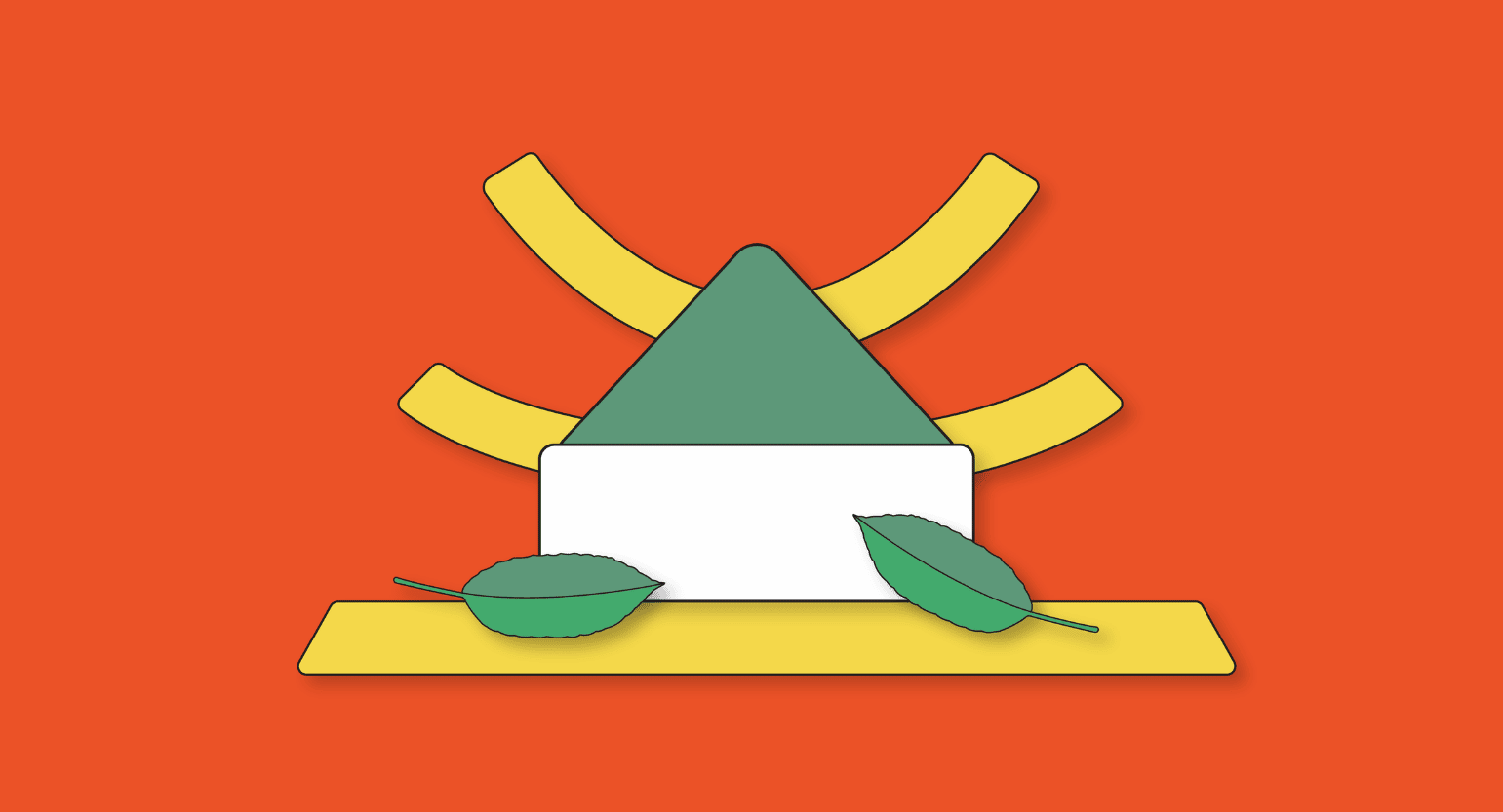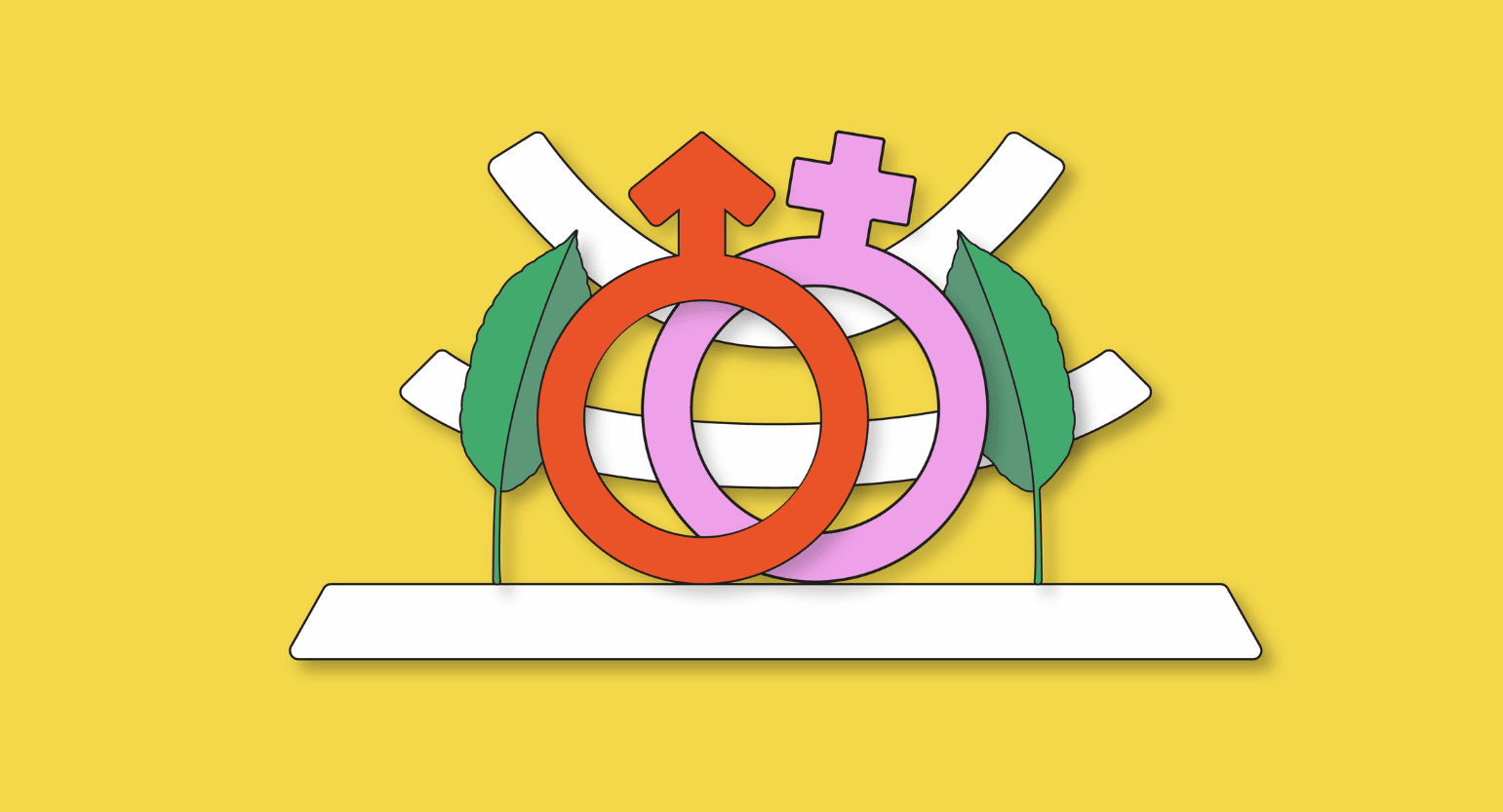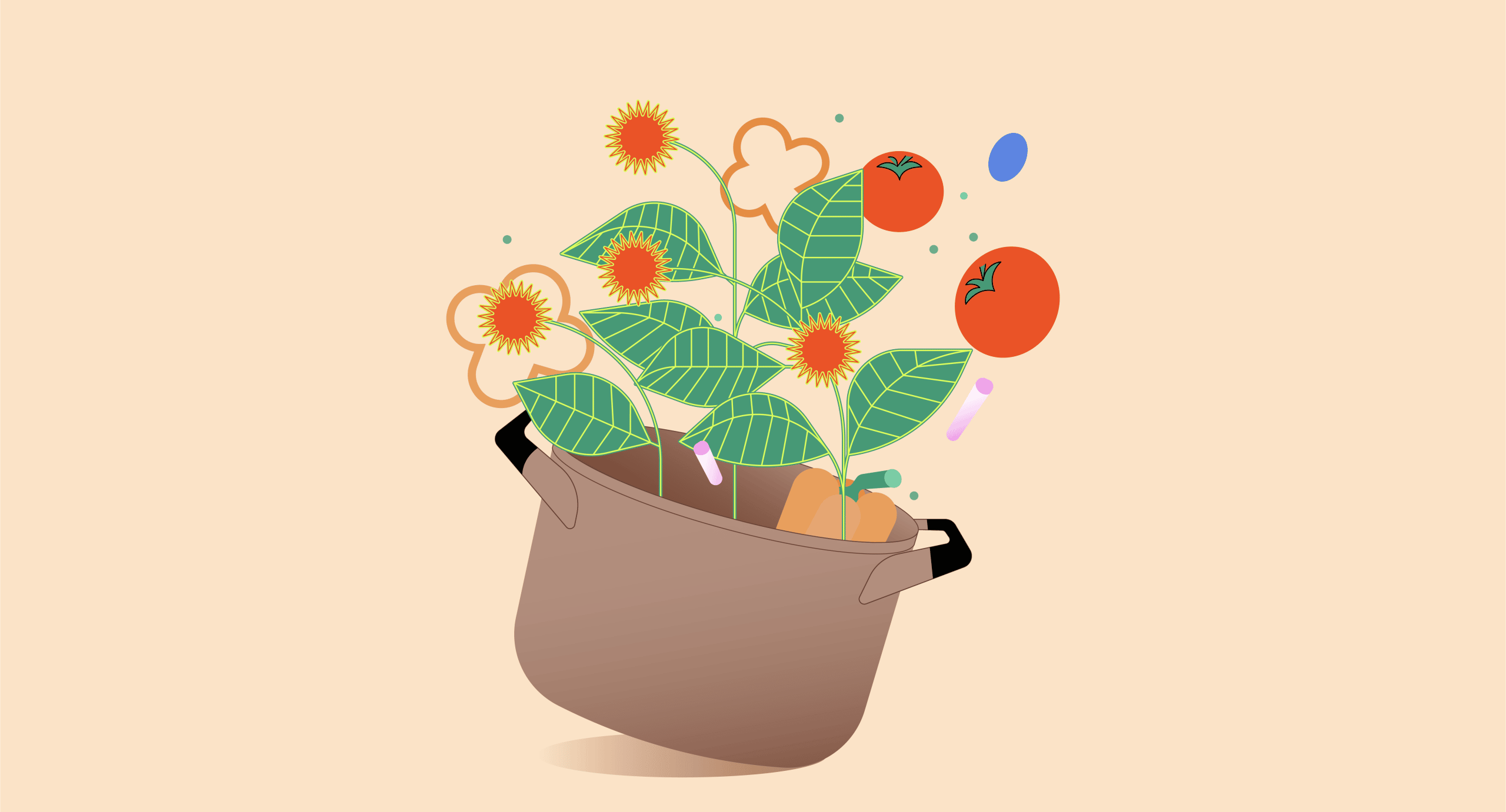What is Cannabidiol (CBD)?
CBD is one of the two major compounds that originate from the cannabis plant. Like kratom, this is a naturally occurring substance.
It can be isolated and made into products like oils, tinctures, salves, and edibles. CBD users report feeling calm and relaxed when they take it.
Unlike cannabis, CBD is a non-psychoactive substance, meaning it will not make you feel high. There are no feelings of euphoria and no hallucinations, thus allowing users to function normally after they take the supplement.
CBD molecules interact with the body’s endocannabinoid system. This system is responsible for managing homeostasis or balance throughout the body. This has an impact on our sleep, satiety, pain, stress, and so much more.
The effect of CBD itself is not intense. Therefore, it’s considered to be a relatively safe substance to consume.
So, what are the primary effects of CBD?
- Alleviates chronic pain
- Reduces anxiety
- Supports mood
- Lowers blood pressure
- It May help prevent acne
- Alleviates nausea
There are many potential benefits of CBD, but these are yet to be proven. Some of these alternative benefits may include anti-tumor effects, diabetes prevention, neuroprotective action, anti-anxiety effects, pain inhibition, and substance abuse treatment.

Will CBD Harm My Health?
As with any substance, there are potential drawbacks associated with CBD. In most cases, CBD is considered safe to consume. There has never been a reported overdose from someone taking too much CBD, and the most common side effects are very mild in nature — the main side effect is feeling a little more tired than usual.
The main side effects of CBD include:
- Changes in appetite
- Diarrhea
- General fatigue
- Weight changes
Research has shown that CBD can react to certain medications in the body. Any medications that contain what’s known as a “grapefruit warning” should not be taken together with CBD.
This is because CBD interacts with cytochromes P450. Both grapefruit and CBD interact with these enzymes, which are associated with the body’s drug metabolism.
One study demonstrated that CBD could lead to toxicity in the liver. However, this study focused on extremely large doses of CBD extract, which is unlikely to be relevant to the real world.
If you already take medications with a grapefruit warning, we highly recommend consulting your doctor before consuming CBD.
What is Kratom?
Kratom (Mitragyna speciosa) usage has increased across the U.S. in recent years. Scientists estimate there are more than two million kratom users nationwide. This natural plant is found throughout Southeast Asia, and U.S. vendors import it directly from this region.
The most common way to consume kratom is by eating fresh leaves. Kratom may also be sold in powdered form, capsules, and pills.
Kratom contains high levels of the alkaloids mitragynine and 7-hydroxymitragynine. It’s these alkaloids that provide the stimulating effects of this substance.
There are four strains of kratom. Each category comes with a different effect, as defined by the different colored veins in each leaf.
Each category leads to the following effects:
- Red Vein Kratom — The most potent type of kratom. Offers moderate pain relief and full-body relaxation.
- Green Vein Kratom — Increases the energy of the user. Also boosts alertness and focus.
- White Vein Kratom— Enhances focus and concentration. More of a nootropic than other forms of kratom.
- Yellow Vein Kratom — Fermented in a special process. Mainly designed to boost mood and get people through the day. These kratom strains are most similar to caffeine.
Different kratom types may be used for different reasons.
For example, using a red vein Maeng Da strain can help with pain relief and symptoms of anxiety. Someone may decide to use green vein kratom, such as Green Sumatra, to balance the need for focus and energy before a workout session.
Also see: Learn How People Are Using Kratom As a Pre-Workout Supplement.

What are the Main Effects of Kratom?
Kratom shares many of the same effects as CBD. The best way to look at kratom is a combination of CBD and caffeine together.
Here are the main effects of using kratom throughout the day:
- Increased concentration
- Eases pain
- Energy boost
- Improved alertness
- Enhanced mood
- Increased cognitive function
- Reduced fatigue
- Fight restlessness
There are differences when it comes to the effects caused by different strains, but there’s a major crossover between all four strains.
The effects also tend to change according to the dose.
In general, low-dose kratom (1–4 grams) is stimulating in nature. This is the dose used by people who employ kratom to help with focus or energy.
High-dose kratom (5–8 grams) is much more sedative. This dose is used to help people suffering from chronic pain or insomnia.
Learn more about kratom dosage guidelines here.
What are the Side Effects of Kratom?
Kratom also comes with its fair share of reported side effects. However, most users only report side effects when taking high doses of kratom.
The side effects of kratom include:
- Anxiety
- Blurred vision
- Elevated heart rate
- Headaches
- Irritation
- Nausea
- Stomach pain
- Tremors
Some people experience what’s referred to as “kratom wobbles,” — which is a triad of nausea, loss of muscle coordination, and dizziness.
If severe side effects are experienced, it’s advised that you immediately seek out medical attention.

Can You Consume Kratom & CBD Together?
Some people choose to consume kratom and CBD together to amplify their individual effects. Since both kratom and CBD come in various forms, it’s relatively easy to combine them.
Kratom and CBD interact with different parts of the body. CBD interacts with the body’s endocannabinoid system — kratom works through the adrenergic and opioid systems instead. Yet somehow, they share very similar results.
An extremely limited amount of research has been conducted into the simultaneous use of kratom and CBD. For this reason, the relationship between the two remains unclear.
If this continues to be the case, there should be no issue with using both substances together to amplify stimulating effects.
The issue comes with dosing. High doses of either substance can lead to side effects.
Correct dosing with any substance depends on multiple factors, including the person’s height, weight, and previous usage.
We recommend speaking to your doctor before consuming either of these substances. This is particularly important if you already take medications for other health conditions.
As a general rule of thumb, it’s best to begin with small doses. When using CBD at the same time, we advise starting with 3-4g of kratom and no more than 10-15mg of CBD.
Dosages can be increased over time.
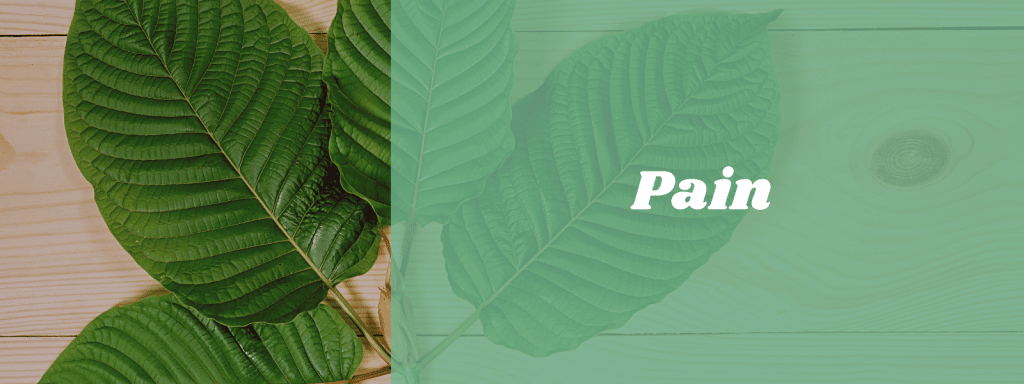
Kratom vs. CBD: For Pain
Both substances interact with the body in different ways. Although kratom and CBD are effective at relieving pain, there are conflicting reviews on which one is best.
Little research has been conducted into comparing the two. Many users do report that CBD is more effective at relieving neuropathic pain, whereas kratom is more effective at eliminating nociceptive pain.
However, both can be used for all types of pain.
Related: Best Kratom Strains for Pain Relief.
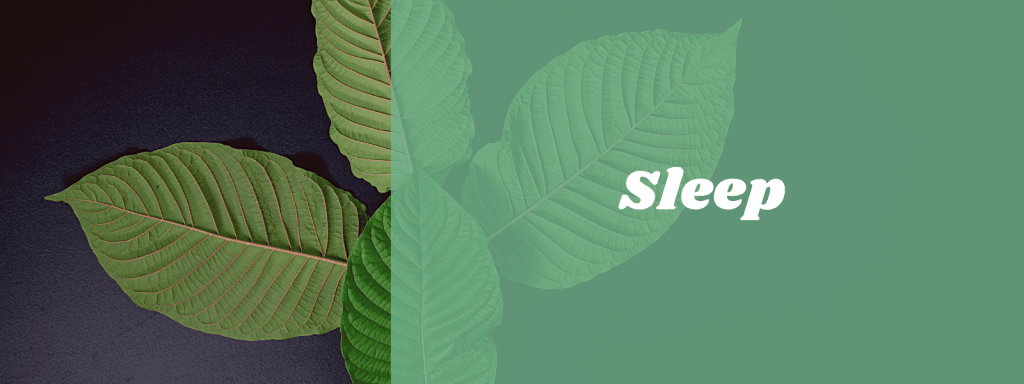
Kratom vs. CBD: For Sleep
CBD is the clear winner here because it’s exclusively a sedative. In high doses, CBD can induce restful sleep.
Due to the different strains of kratom, it’s considered to be both a sedative and a stimulant. Although kratom is well-known for helping with insomnia, the wrong strain and the wrong dosage could have the opposite effect.
There’s also the risk of inducing the “kratom wobbles” if too much is taken.
Related: Best Kratom Strains for Sleep.
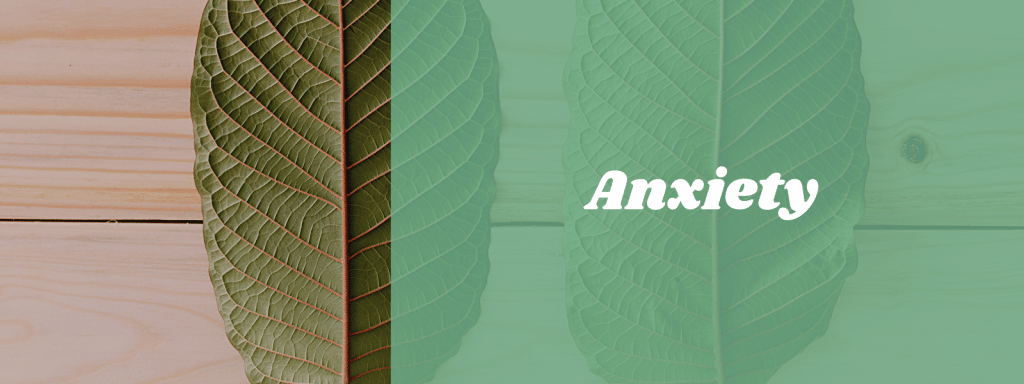
Kratom vs. CBD: For Anxiety
CBD is widely used to treat anxiety. One poll revealed that 37% of American CBD users were taking CBD to combat anxiety and reported it was extremely effective. Since CBD is the substance in cannabis that helps to calm and relax, it should come as no surprise that CBD is an excellent treatment option for anxiety.
Kratom does offer mild anti-anxiety benefits in higher doses. Lower doses prioritize the stimulating effect, which may increase symptoms of anxiety.
However, kratom is an excellent anti-depressant in higher doses because it triggers dopamine release. With many anxiety sufferers also experiencing depression, the feelings of euphoria gained from kratom could help many people with mental health problems to ease their symptoms and get through the day.
Related: What Are the Best Kratom Strains for Anxiety?

How Do CBD & Kratom Work?
CBD and kratom treat many of the same problems, but their active ingredients and mechanisms are completely different.
CBD focuses on the endocannabinoid system, whereas kratom targets both the adrenergic and opioid systems. This is why their effects are different, and the two substances can be mixed at the same time.
Neither substance’s action interacts with the other.
The mechanism of CBD involves interaction with the body’s homeostasis regulation. It modulates these receptors, thus changing the volume of signals that are transmitted to the brain. The actual mechanism is far more complex, but this is the basic gist.
Kratom, on the other hand, actives the opioid receptors found in the brain and spinal cord. It regulates the signals sent to the brain. In terms of pain relief, it’s the same mechanism of action as many common prescription pain relief options, including morphine.
Also see: Is It Safe To Mix Kratom With Weed (Marijuana)?
Kratom vs. CBD: Which is Safer?
Neither substance is considered to be particularly harmful. In the long term, CBD is considered to be safer because there’s practically no risk of dependency. Kratom can lead to dependency if users don’t monitor their intake.
We recommend taking kratom no more than four days per week. If you feel that you have to increase your initial dosage by more than 50% to feel its effects, take a break of at least two weeks.

Final Thoughts: Kratom vs. CBD — Which One Should I Use?
Kratom and CBD interact with the body in completely different ways yet produce similar stimulating effects. This potential synergistic relationship allows the two substances to be combined, but be careful not to take too much of either supplement.
CBD is the better option for inflammatory disorders, autoimmunity, or low-grade pain, while kratom is better for poor focus, low energy, or more severe pain.
You can also take both supplements together to provide stronger, more well-rounded benefits. The relaxing effects of CBD pair well with offsetting some of the more stimulating side effects of kratom when used in lower doses.

